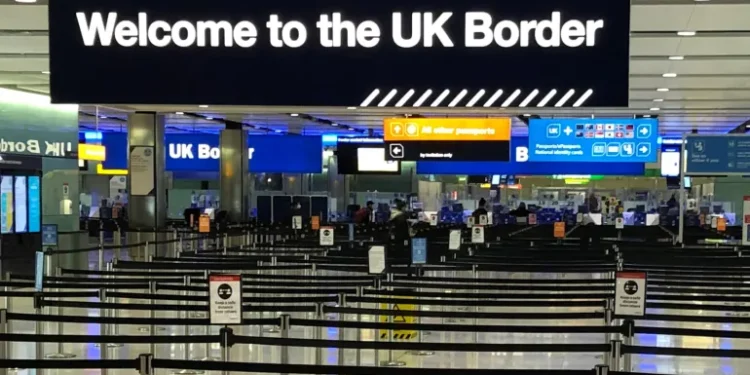Nigeria ranked fourth among non-EU+ nationalities sending migrants to the United Kingdom in the year ending June 2025, according to the Office for National Statistics (ONS).
The data highlights continued shifts in UK migration patterns, driven by fewer arrivals for work and study alongside modest increases in emigration.
A total of 40,000 Nigerians immigrated to the UK in the year ending June 2025, including 25,000 for study, 12,000 for work, and 3,000 via other routes.
- Nigeria ranked behind India, China, and Pakistan as the top contributors among non-EU+ nationals.
- For comparison, 143,000 Indians arrived, including 90,000 for study, 46,000 for work, and 7,000 via other routes. 66,000 Chinese nationals arrived, with 52,000 for study, 5,000 for work, and 9,000 via other routes.
- 63,000 Pakistanis came to the UK, including 34,000 for study, 17,000 for work, and 12,000 via other routes.
- 21,000 Nepalese nationals also arrived, mostly for study (17,000) with smaller numbers for work and other reasons (2,000 each).
The year saw a sharp decline in study-related migration overall, with 288,000 non-EU+ nationals arriving in the UK for study, down 25% from the previous year and well below the 486,000 peak in 2023. Among these, 275,000 were main applicants, while study dependants fell from 87,000 to 13,000, a decline of roughly 85%.
Work-related migration also dropped significantly, with 171,000 non-EU+ nationals arriving for employment, a 61% fall from the previous year.
Main work applicants numbered 86,000, while work dependants fell 65% to 85,000. Officials attribute the decline to policy reforms introduced in early 2024, which restricted most overseas students and care workers from bringing family members and raised salary thresholds for skilled worker visas.
By contrast, asylum-related migration increased. 96,000 people claimed asylum in the year ending June 2025, up from 81,000 the previous year. These figures include arrivals via both regular and irregular routes, such as small boats, consistent with Home Office statistics.
What you should know
The data also shows continuing pressure on the asylum system. At the end of September 2025, 36,273 asylum seekers were housed in hotels, despite government promises to phase out such temporary accommodations.
A previous report showed that overall net migration to the UK slumped by 80% in the last two years. Earlier this month, Home Secretary Shabana Mahmood announced a package of immigration reforms.
Key measures include extending the qualifying period for Indefinite Leave to Remain from five to ten years, restricting settlement eligibility for benefit claimants, making refugee status temporary with reviews every two and a half years, and introducing capped “safe and legal” migration routes.
The Home Office plans to implement the reforms in spring 2026, following a public consultation ending February 12.

















